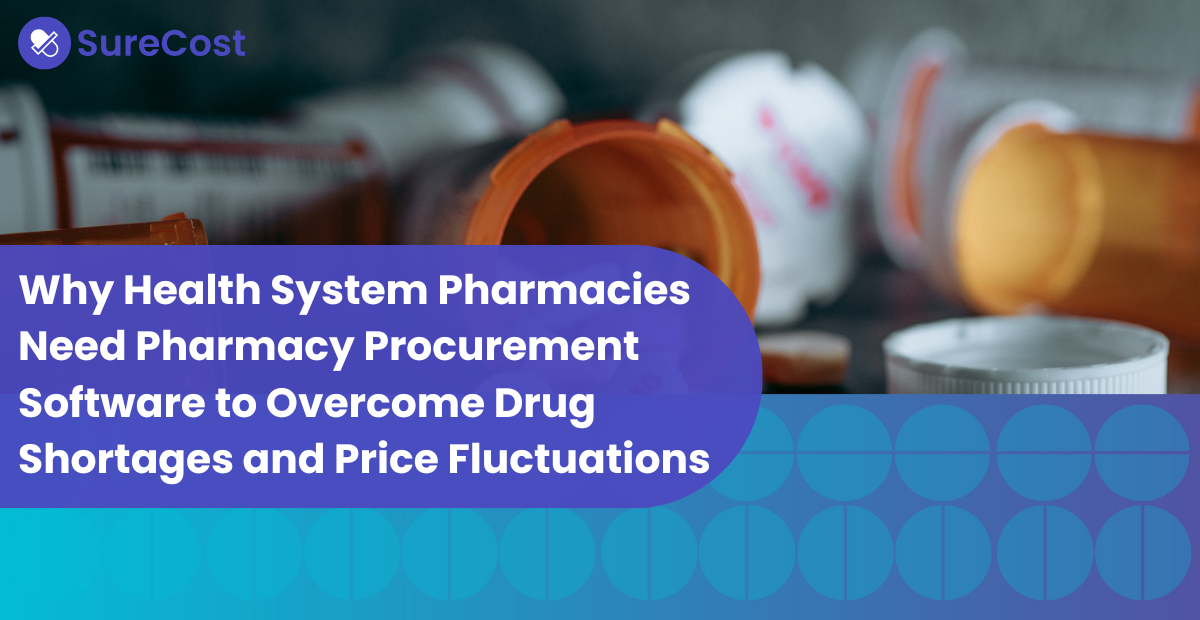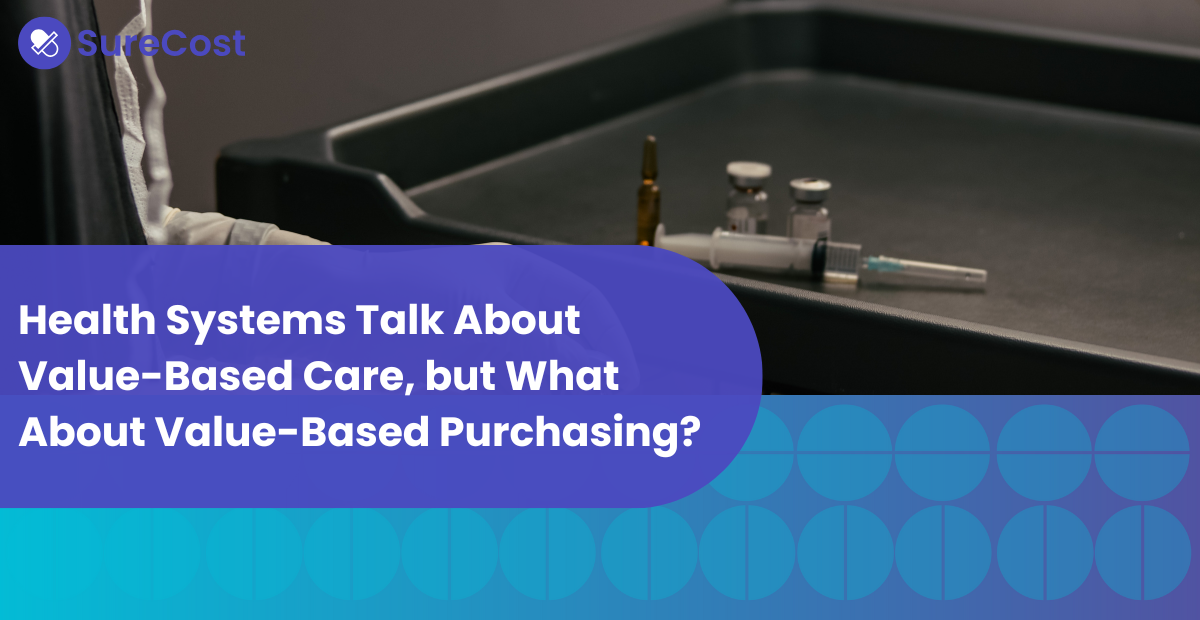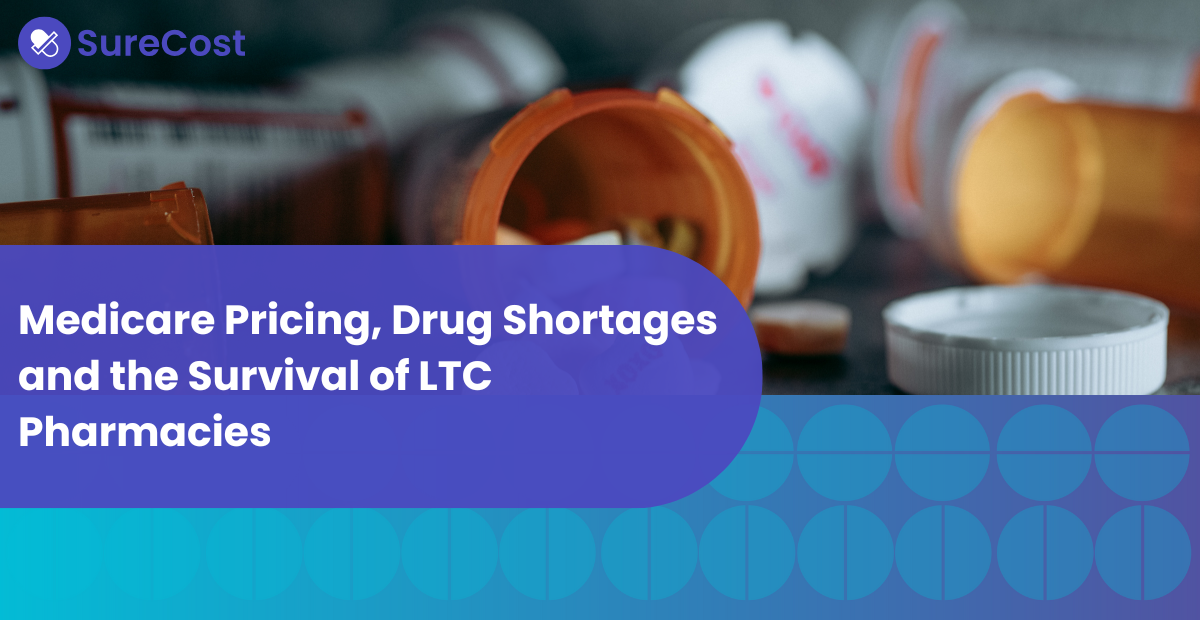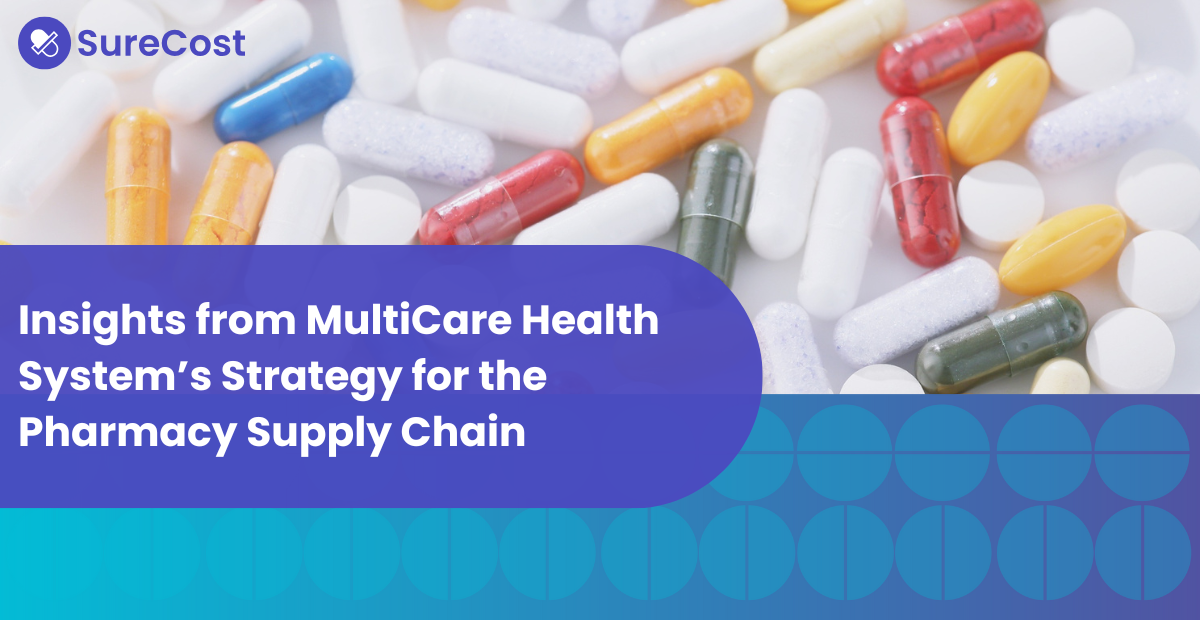High demand, a dynamic marketplace and supply chain disruptions already contribute to making U.S. drug prices some of the highest worldwide. But health systems have also contended with record-breaking rates of drug shortages for several years now. The first quarter of 2024 saw the highest rate of drug shortages in nearly a decade, and active shortages remain stubbornly high.
The Inflation Reduction Act (IRA) will force health systems to pay even more for prescription drug products. Manufacturers, commercial insurance plans and pharmacy benefit managers (PBMs) will compensate to stay competitive in this new landscape. Patients may save on their prescriptions, but health systems and pharmacies across the country will end up paying more to purchase their medications.
Given the high demand for pharmaceuticals, increasingly complex patient profiles and an aging population, health systems need every resource to mitigate the impact of drug shortages and price fluctuations. Unfortunately, many health system pharmacies are, at best, playing catch-up.
The Costly Traditional Approach to Pharmacy Purchasing
We’ve worked with and advised literally thousands of pharmacy professionals across the country. They’ve shown us that traditional pharmacy procurement simply doesn’t work. That includes approaches like:
- Relying on manual processes and siloed systems
- Shopping and then purchasing from multiple sources one at a time
- Relying on outdated or jerry-rigged technology
Teams are stuck reacting to (not anticipating) issues. Without the right tools, they waste hours comparing products, confirming compliance and correcting errors. Pharmacies also miss out on savings because they lack visibility into procurement trends and vendor behavior. Disconnected workflows lead to delays and costly mistakes, while staff lack resources to consistently follow the health system’s strategy.
When it comes to pharmacy purchasing, “business as usual” means health systems lose time and money as they burn out an already overworked staff.
The Need to Elevate Pharmacy Procurement
Disruptions aren't slowing down, but pharmacies still need to look ahead and empower their teams to make proactive decisions (instead of just reacting to the onslaught of challenges).
Best-in-class pharmacy procurement software elevates procurement to adapt to the current pharmacy landscape. A solution like SureCost helps you act faster, plan smarter and stay ahead of market volatility. Your health system can now harness intelligent recommendations, predictive shortage alerts and AI-guided workflows.
We’re also developing Drug Shortage Insights™, which will analyze NDC-level supply trends and predict risk levels. This feature leverages SureCost CoPilot’s configurable automation and intelligent modeling. That enables health systems like yours to plan more effectively and avoid disruptions to your workflow or financial health.
Most importantly, the right pharmacy procurement software elevates pharmacy procurement from routine to strategic without complicating how you work. Instead of adding more work or another system, it integrates with your workflows while consolidating processes and data. Technology can never replace teams, but the best technology makes your job easier and drives efficiency.
Understanding the Full Scope of the Challenge and Solution
Download our latest white paper, Navigating Drug Shortages and Price Fluctuations, for a deeper dive and actionable strategies.
It explains why price fluctuations and drug shortages will become even more costly and complex, and then outlines a strategy to mitigate their impact. The paper also highlights solutions and strategies that empower pharmacies to turn disruption into opportunity.
With the right approach and tools, your health system can overcome these challenges and continue achieving its goals.







.png)